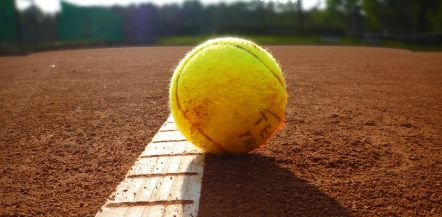The Council of Europe has been working since 2005 on solutions to such problems.
The key is to ensure that everyone involved in sport, from players, to trainers, to organising bodies work together, share information and aim for the same goal – fairness and safety in sport.
Stamping out corruption is important, not just for the image of sport, but for our liberal democracies per se, as it helps rebuild the public’s flagging trust in institutions.
(for information on the more specific aspect of corruption relating to the manipulation of sport, see the match-fixing page)
What is the Council of Europe doing?
The Council of Europe is conducting a review of alleged cases of corruption in sport (Database on alleged cases of corruption in sport DACCS 2016) through its European sports co-ordination body, EPAS.
It is also gathering and sharing good practices from governments and umbrella sports organisations on the promotion of good governance in national sports organisations.
The work of EPAS on Gender Equality in Sport and Diversity in Sport plays an important role by promoting fair play in sport.
The Council of Europe has recently contributed to the bringing together of an international Partnership against Corruption in Sport (IPACS), with international sports organisations, governments and other inter-governmental organisations to deal with the problem and agree on common standards.
The Partnership’s task force on the convergence of existing good governance frameworks is co-ordinated by EPAS. This covers: mandate limits, financial transparency and conflicts of interest. It will, among other things, be responsible for improving existing, legitimate frameworks (e.g. enhancement of the ASOIF questionnaire).
In addition, EPAS prepared the Recommendation on the promotion of good governance in sport, which was adopted by the Committee of Ministers in December 2018.
Recommendation CM/Rec(2018)12 and its Explanatory memorandum (ISBN format)
Associated Work
EPAS fully supports the Sport Governance Observer 2017-2018 Project, which is being run by “Play the Game” with the support of the European Union. This will enable non-EU countries from the Council of Europe’s 47 Member States to join the process.
EPAS co-ordinated a UNESCO activity, within the Kazan Action Plan, to develop guidelines on integrity in sport to tackle problems including: doping, match fixing, sexual harassment and abuse and spectator violence.
EPAS is interested in supporting independent research on the implementation of good governance by sports organisations.
It is also following a Summary Analysis of Selected Private Sector Bribery Cases launched by the Council of Europe’s GRECO, which covers the sports sector.
History
Good governance in sport has been on the political agenda since the beginning of the noughties.
The topic emerged when the Council of Europe Conference of Ministers responsible for sport addressed it as its main topic in 2004.
On 20 April 2005 the Council of Europe’s Committee of Ministers Recommendation CM/Rec(2005)8 on the principles of good governance in sport was adopted.
However, the resulting guidelines and principles established by international sports organisations have been not been properly implemented (see 2015 “Sport Governance Observer” (SGO) assessment of the implementation of good governance principles among 35 Olympic International Sports Federations).
Although not endemic in sport, corruption remains a serious problem. It was therefore the main theme of the Council of Europe’s 13th Conference of Ministers responsible for Sport in Macolin, September 2014 (MSL13), and the 14th Conference of Ministers responsible for Sport in Budapest, October 2016 (MSL14).
The topic has also been addressed by the Council of Europe’s Parliamentary Assembly:
Resolution 2053 (2015) – The reform of football governance
Resolution 1875 (2012) – Good governance and ethics in sport
Recommendation 2120 (2018) – Towards a framework for modern sports governance

